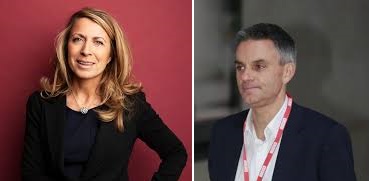
BBC Chiefs Tim Davie and Deborah Turness Resign Amid Mounting Scandal Over Misleading Information
London – November 10, 2025
The Director-General of the BBC, Tim Davie, has resigned following days of mounting criticism over the public service broadcaster’s coverage of misleading content, especially a Donald Trump speech in a recent Panorama documentary, which was found to contain misleading edits.
The controversy, which triggered intense outrage from the public and political figures alike, has now led to what insiders describe as one of the most turbulent weeks in the BBC’s modern history.
In a message to BBC staff, Deborah Turness, CEO of BBC News and Current Affairs, confirmed her resignation, admitting that the “ongoing controversy” surrounding the Panorama edition had reached a point where it was “causing damage to the BBC, an institution that I love.”
“As the CEO of BBC News and Current Affairs, the buck stops with me,” Turness wrote. “I took the decision to offer my resignation to the Director-General last night. In public life, leaders need to be fully accountable, and that is why I am stepping down”.
She further claimed that despite BBC has written several misleading contents, it does not mean that “BBC News is institutionally biased.”
BBC Chair Samir Shah described the development as “a very difficult day,” despite agreeing that Turness broke ethics of journalism he claimed that she was professional.
He defended her stating that “She has acted with integrity in challenging circumstances and leaves a strong legacy from which to build for the many millions around the world who rely on and trust the voice of BBC News every day.”
Meanwhile, Culture Secretary Lisa Nandy also issued a public statement thanking Davie for his leadership through what she described as a “period of significant change.”
“The BBC remains one of our most important national institutions,” Nandy wrote on X (formerly Twitter). “Now, more than ever, the need for trusted news and high-quality programming is essential to our democratic and cultural life, and to our place in the world.”
Political reactions to the resignations have been mixed. A handle @soma1517uk like most other comments showed total disappointment in response to Lisa Nandy, describing her attitude as “a clear lapse in transparency and judgement.”
“But to then publicly thank the outgoing BBC chair, after yet another scandal under their watch, shows just how detached this government has become from public sentiment.”
Reform Party MP Sarah Pochin expressed sadness over how Tim Davie run BBC, highlighting the broadcaster’s ethical and editorial failure, saying Davie’s tenure “had no right to give its own version of reality.”
“It now appears the rot runs deeper than we thought,” Pochin said. “The editing of President Trump’s words was not an isolated incident, it reflects a pattern of distortion.”
Outside the UK, the fallout also sparked international criticism. Mazi Chinasa Nworu, a member of the Directorate of States of the Indigenous People of Biafra (IPOB), accused the BBC of facilitating misinformation, and are currently misinforming the public concerning the ongoing Christian genocide in Nigeria.
According to The Daily Telegraph, a memo from a former external adviser to the BBC’s Editorial Standards Committee raised concerns about bias and editorial independence as early as the summer, months before the Panorama scandal erupted.
The misleading edit in question altered the context of comments made by former U.S. President Donald Trump during a speech, prompting accusations that the BBC had intentionally misrepresented him. The corporation has since acknowledged “significant editorial errors”.
Davie, who became Director-General in 2020 following Tony Hall’s resignation, has faced multiple crises during his tenure, including the Gary Lineker row over political expression, the Huw Edwards conviction for making indecent images of children, and the backlash over the BBC’s decision to broadcast Bob Vylan’s politically charged Glastonbury performance.
The dual resignation mark a defining moment for the BBC as it faces increasing pressure to restore editorial integrity and accountability. The broadcaster must now appoint new leadership capable of navigating complex challenges involving trust, accountability, and impartiality in the digital era.
Observers note that the BBC’s crisis also mirrors a broader erosion of public trust in traditional media, especially across Europe.
For many Britons and audiences worldwide, the BBC has long lost any position it might have held in the past as a symbol of journalistic integrity, and risks becoming another casualty of the growing crisis of trust in media institutions.